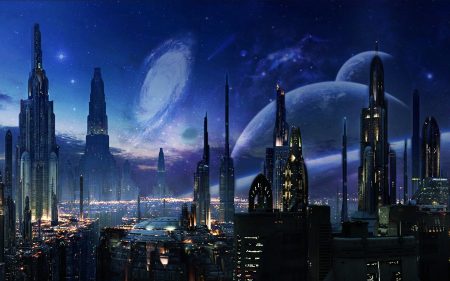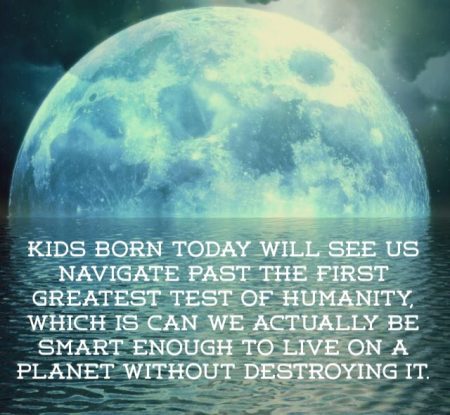June 7, 2017 – Evolution and technological innovation are at a crossroads for our species here in the 21st century. We, through natural processes, have developed big brains. Those brains have invented a technological civilization. That civilization has given us the means to be less dependent on the physical world we inhabit. In fact, we are reaching a point where we can alter ourselves through genetic manipulation and other technologies. Some see our future in a merging of humanity and artificial intelligence (AI), a singularity that will be a makeover for our species. Others see us succumbing to the technology we have created as AI machines replace us.
The Earth is 4.5 billion years old. Millions of life forms have flourished and died since the first living cells emerged over 3.5 billion years ago. Our presence is a flash in the pan in geological time. Our influence on the planet in a mere two centuries of technological advancement, however, has been significant. Darwin in describing his theory of evolution tells us that no species is immutable. When he visited the Galapagos Islands he found bird species that exhibited common characteristics but that had evolved rapidly to exploit the different isolated environments of the archipelago. Some birds evolved characteristics to help them eat insects while others had beaks suitable for cracking seeds. The evolutionary change represented in the Galapagos was not one of evolution over millions of years, but rather punctuated in a much shorter timeline.
Now here in the 21st century, we as a species have reached a critical mass capable of altering our planet’s environment. Carbon dioxide and other greenhouse gases may prove to be the evolutionary impetus that changes us.
And as the illustration above states, if we are smart enough to live through this century, a hundred years from now, as we adjust physically to our changing planet, we will begin to no longer be the same biologically. And when you add our technology to the equation, the transition may make us unrecognizable within a few centuries to those who are alive today.
And should we make the leap to the stars, we may even become multiple species, each engineered for the environments we encounter on planets orbiting distant suns. We have the tools already in place to re-engineer the human genome. We have advanced computing technology that rivals our intellect when playing chess or Go. We have neural network technology called deep learning that gives AI the ability to become self-educating. We have machines that can incorporate the AI we are building to eventually become either our partners or our successors.
All of these potential changes to our human condition are the product of a scant few decades spanning from post-World War 2 to the present. So imagine what 83 years in the future may be like. Will we be in the post-human age where one or more successor species will look back at the beginning of the 21st century and see it as the birthplace of their existence?
Two years ago a robotic spacecraft reached the dwarf planet Pluto. Pluto represents a delineation of our traditional perspective of our immediate space environment, the Solar System. By the end of the 21st century Pluto will seem like a very small step for our successors. We will have explored much of our local space by then and likely will have made the first interstellar voyages to Proxima Centauri and its planetary system. But it won’t be the humans we know of today that will be doing this space outreach. It will be species designed to make the leap, a combination of our ability to manipulate our genome while integrating other elements of our technology.
We are, at this moment, experiencing the dawn of a post-human age. And as we perfect our technologies even further may encounter other intelligence beyond our local space, intelligence that may have also undergone a post-natural engineering of their species.
For humans in the 21st century, we have a few hurdles to leap over to get to this future I describe. First, we must recognize our human impact on the planet and adapt to our changing circumstances. Second, we have to recognize that change is part of the natural order that has driven Earth through time. And third, we have to use our big brains to embrace the challenges and seek the discoveries that will lead us into the post-human age. We are in our present technological civilization, a flash in the pan in terms of the Universe that we observe, a physical space some 13.5 billion years old. We may have produced a Newton and an Einstein to give us a sense of this off world that surrounds us, but there will be post-Newtons and post-Einsteins that will magnify our understanding of time and space propelling us into an unimaginable future. It won’t be Star Trek or Star Wars. It will be entirely unrecognizable.
Now if we can only get past this Trump fellow.

















